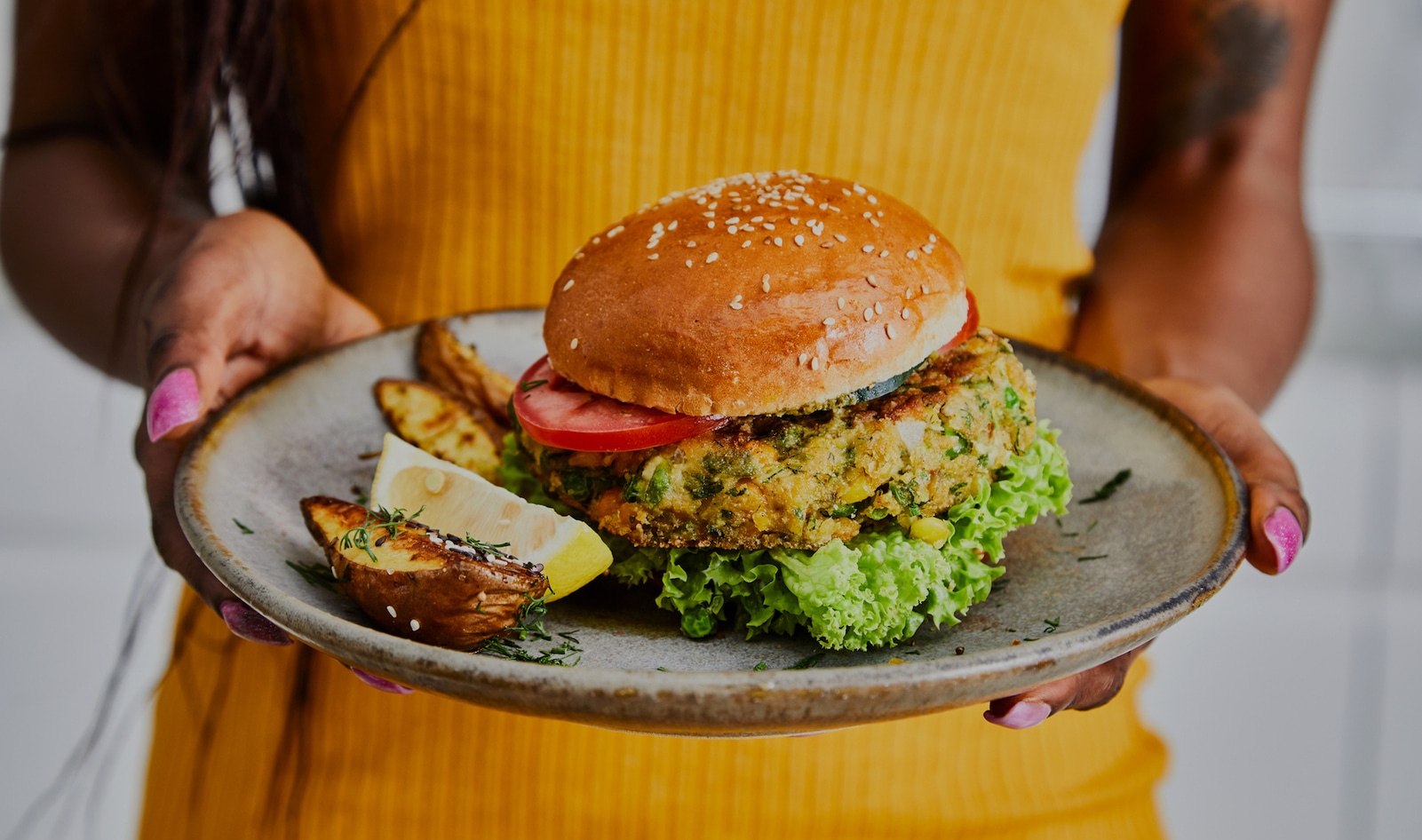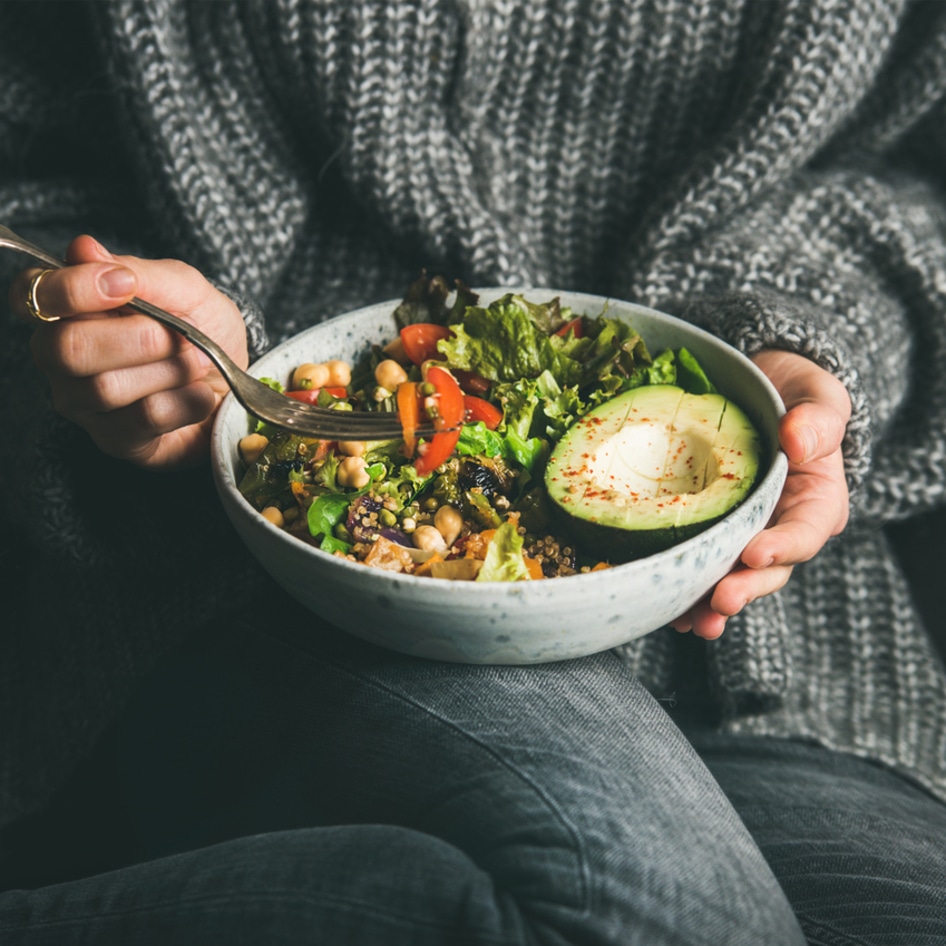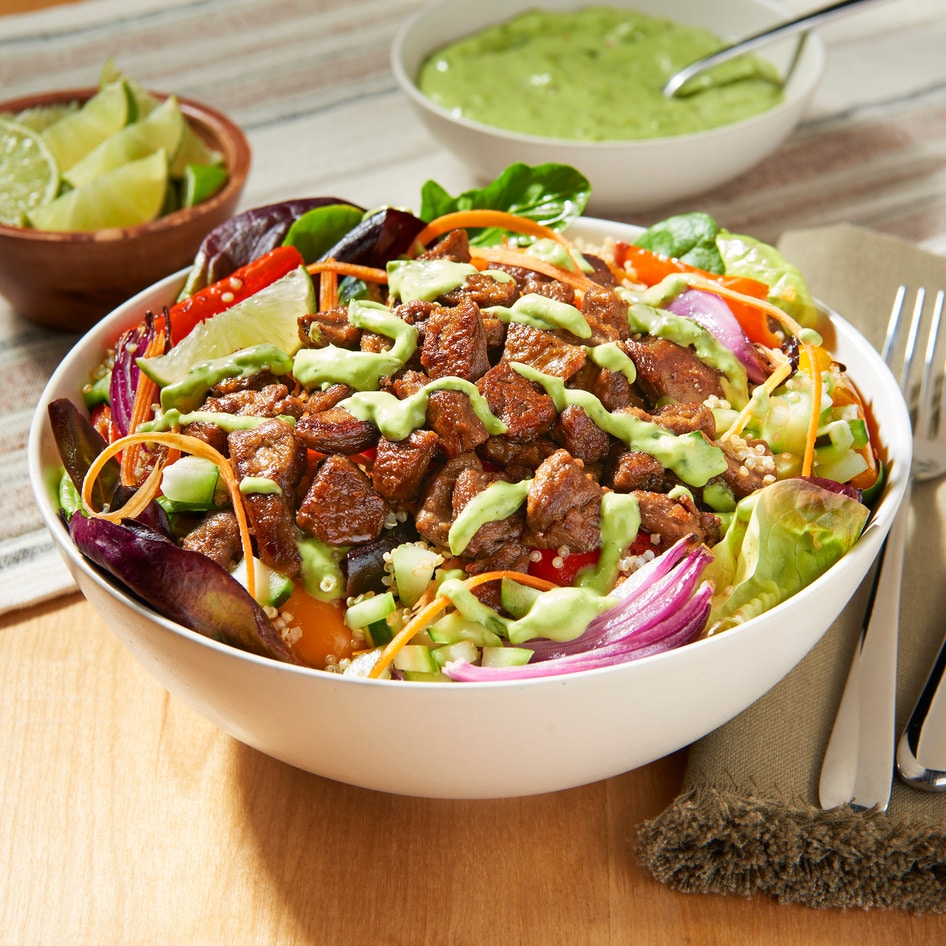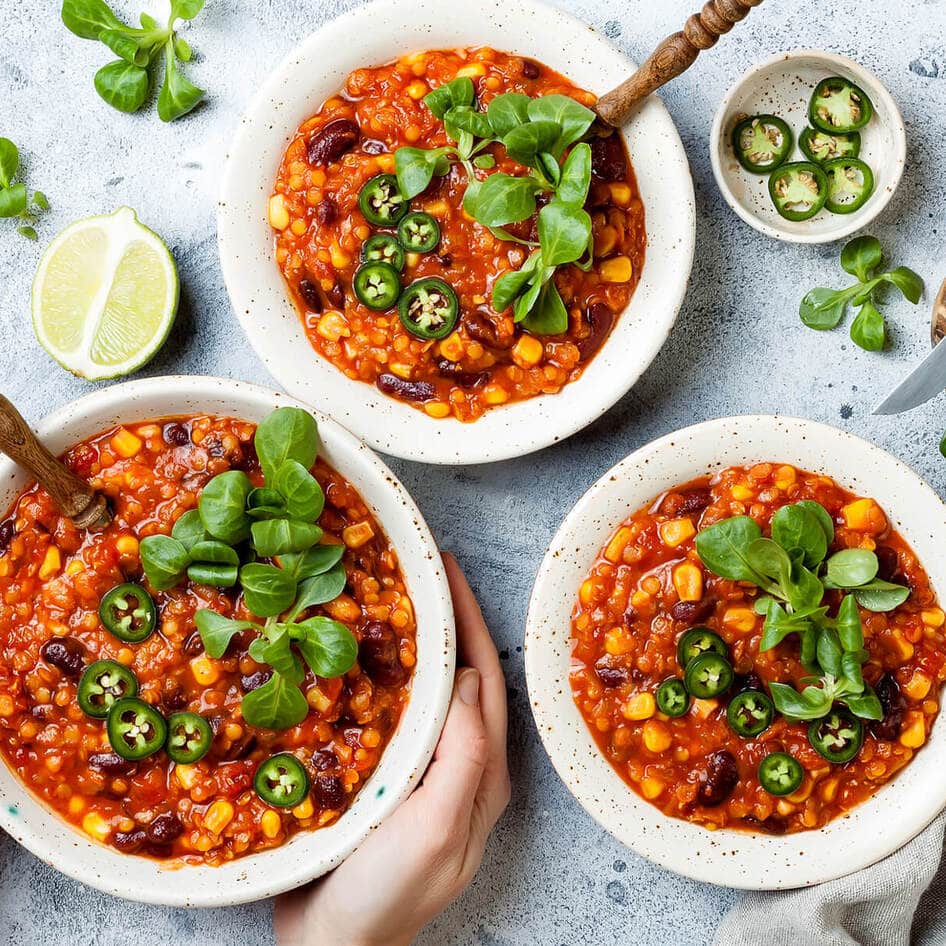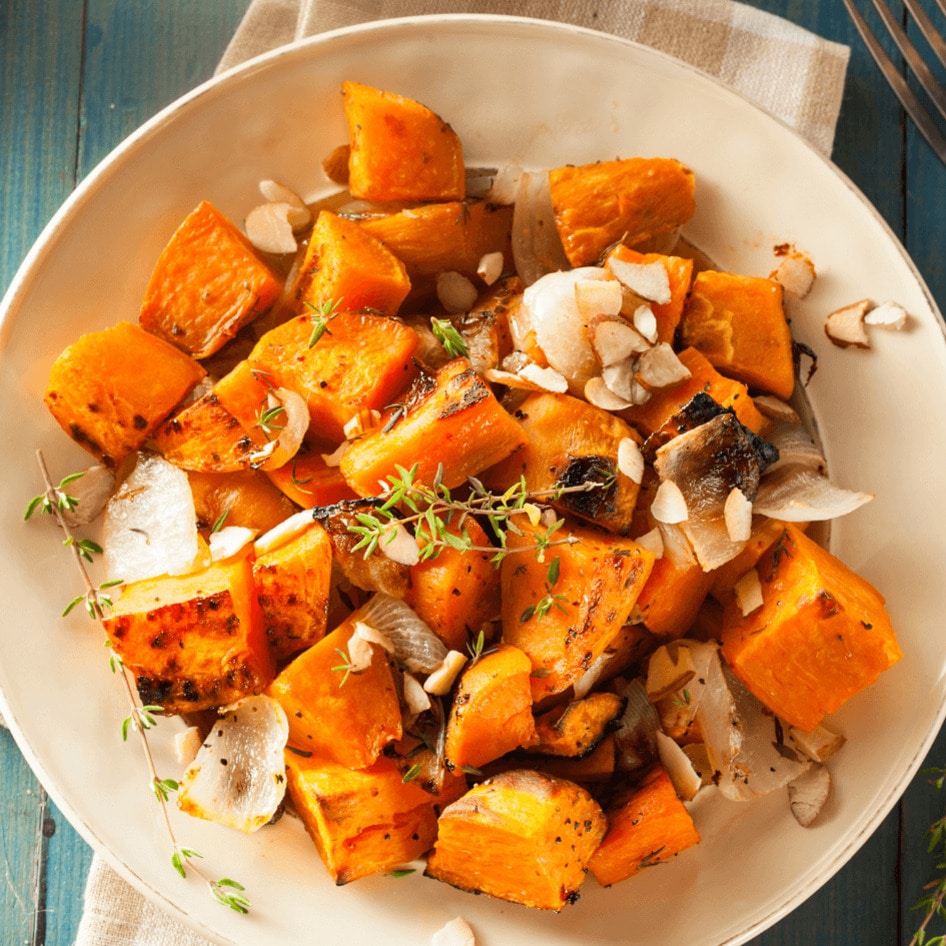An autoimmune diet isn’t just one thing. It’s an umbrella term that refers to more than 80 types of chronic diseases where the immune system attacks the body, including Celiac disease, lupus, rheumatoid arthritis, Crohn’s, and more. If you live with an autoimmune disease, it’s likely that you’ve experienced joint pain, fatigue, digestive issues, skin issues, and other symptoms. But, recent research suggests that vegan food could help manage flare-ups.
Autoimmune diseases affect more than 24 million Americans and 80 percent of them are assigned female at birth, according to Johns Hopkins Medicine. Autoimmune diseases may also be determined by genetics, but anyone can have one.
However, some people have a difficult time getting diagnosed with a specific autoimmune disease because symptoms tend to overlap.
Can a vegan diet help with autoimmune disease?
Kim Kardashian has psoriasis, an autoimmune disease that’s marked by dry, scaly patches of skin, and follows a mostly plant-based diet to manage her symptoms.
Tennis legend Venus Williams has Sjögren’s Syndrome, which attacks the body’s ability to produce tears and saliva, and manages her symptoms with a vegan diet. But, what does science say about plant-based diets and autoimmune diseases?
 Canva
Canva
“For some of these autoimmune diseases there are certain foods that can make them worse,” Dana Ellis Hunnes, PhD, MPH, RD, and author of the book Recipe for Survival, tells VegNews.
Since every person is different, those foods are different for different people. But, research shows that anti-inflammatory foods can help manage flare-ups. Many anti-inflammatory foods happen to be plant-based. But, those with certain conditions may need a more specialized diet, Hunnes adds.
“For something like lupus, the individual may have to avoid foods high in phosphorus or potassium, and either limit protein or switch to plant-protein, which is kinder on the kidneys and less inflammatory,” she says.
Which foods trigger autoimmune flare-ups?
Many things can cause a flare-up, including stress, the weather, gut health, and diet. Generally speaking, inflammatory foods are likely to cause flare-ups.
Inflammatory foods include:
- Artificial trans fats: Margarine, food with hydrogenated oils
- Deep-fried foods: French fries, fried chicken, mozzarella sticks
- Excessive alcohol: Beer, wine liquor, and other spirits
- Red and processed meats: Burgers, steak, bacon, deli meats
- Refined carbohydrates: White bread, white pasta, white rice
- Sugary food and drink: Soda, juices, candy, chocolate, pastries, doughnuts, cookies
“Since many of these autoimmune diseases are exacerbated or flared-up by inflammation, these foods tend to also increase the likelihood of an autoimmune disease flare,” Hunnes explains.
Triggers differ from person to person and from disease to disease, she adds. If someone has Celiac disease, then they’ll benefit from a gluten-free diet. During a Crohn’s disease flare-up, it’s best to avoid high-fiber foods or follow a BRAT diet—bananas, rice, applesauce, tea, and toast.
An elimination diet, where you completely remove one or more types of food from your diet for a few weeks, could help you identify triggers that are specific to you. “Then you simply add one food back at a time to see how your body reacts. If there is no reaction, it’s not a trigger. If you do react, it is,” Hunnes says.
The Autoimmune Protocol Diet is an elimination diet that’s reported to help reduce inflammation. But, it does not allow grains, legumes, nuts, or seeds, so it’s not recommended for vegans.
It’s best to work with a registered dietitian nutritionist, or doctor, if you’re going to make any changes to your diet.
Which foods help with autoimmune diseases?
Many anti-inflammatory foods are also vegan. In addition to this, it’s good to consider eating mostly whole, plant-based foods, meaning you avoid highly-processed foods along with excess oil, salt, and added sugar. Don’t worry—whole grain or legume-based pasta count as “minimally-processed.” Plus, olive oil is rich in oleic acid, which studies suggest reduces inflammation.
According to Hunnes, anti-inflammatory vegan foods that could help manage autoimmune flare-ups include:
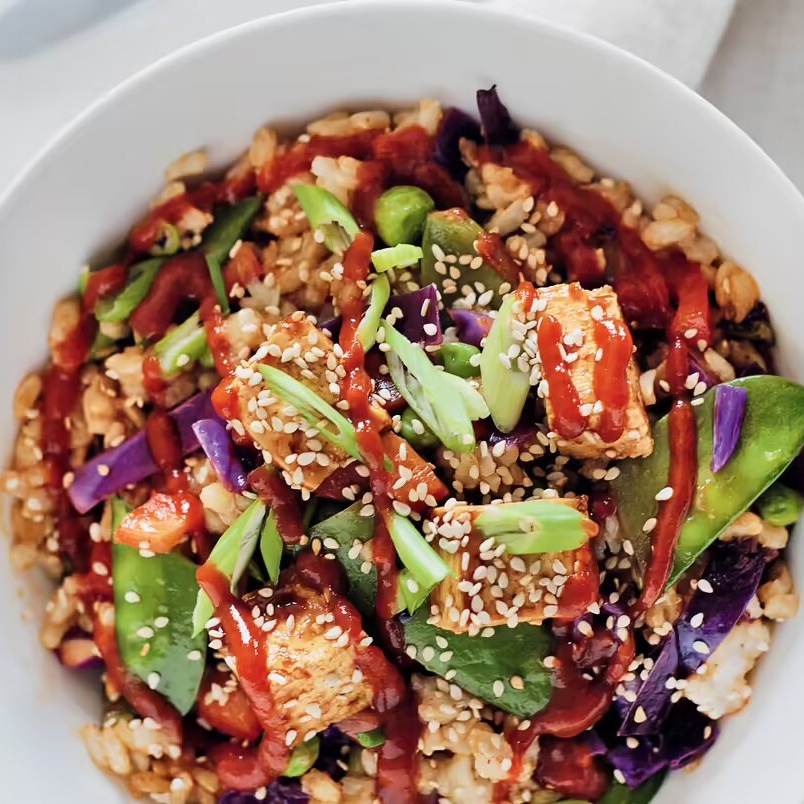 Jenn Sebestyen
Jenn Sebestyen
1 Whole grains
Whole grains are what you get when all three layers of the kernel—bran, endosperm, and germ—have been left intact. Whole grains are a good source of complex carbohydrates, fiber, protein, iron, B vitamins, antioxidants, polyphenols, and other minerals.
Refined grains, on the other hand, have been stripped down to just the endosperm, removing most of the nutrients. This is why so many white bread and pasta products are enriched with added vitamins and minerals.
It’s especially common for people with autoimmune diseases to go gluten-free. In this case, you should avoid whole wheat, rye, barley, farro, spelt, freekeh, wheat berries, and couscous, which is made from durum wheat.
Gluten-free whole grains include brown rice (hello, vegetable fried rice with tofu!), oats, buckwheat, quinoa, sorghum, and millet. Most supermarkets carry pasta, bread, and cereal made from gluten-free whole grains.
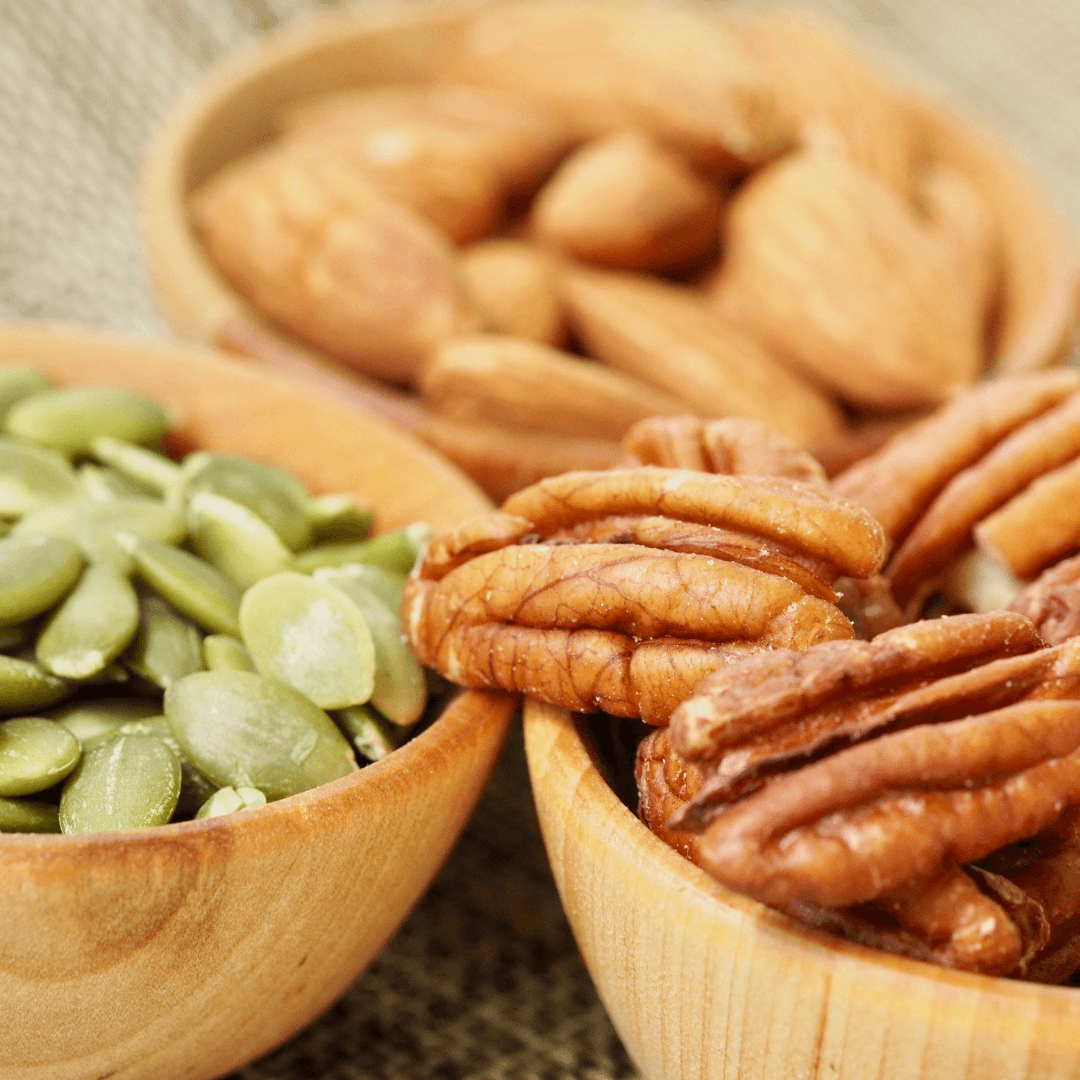 Canva
Canva
2 Nuts and seeds
Many nuts and seeds contain flavonoids, antioxidants like vitamin E, and other plant compounds that help fight inflammation. They also contain heart-healthy unsaturated fatty acids, including omega-3, which research suggests can protect from inflammation as well.
Add a wide variety of nuts and seeds to your diet, such as walnuts, almonds, chia seeds, flaxseeds, pistachios, and pecans. A small handful of nuts or seeds is roughly a serving and can make a good snack. Nut butter is a great mix-in for oatmeal and smoothies.
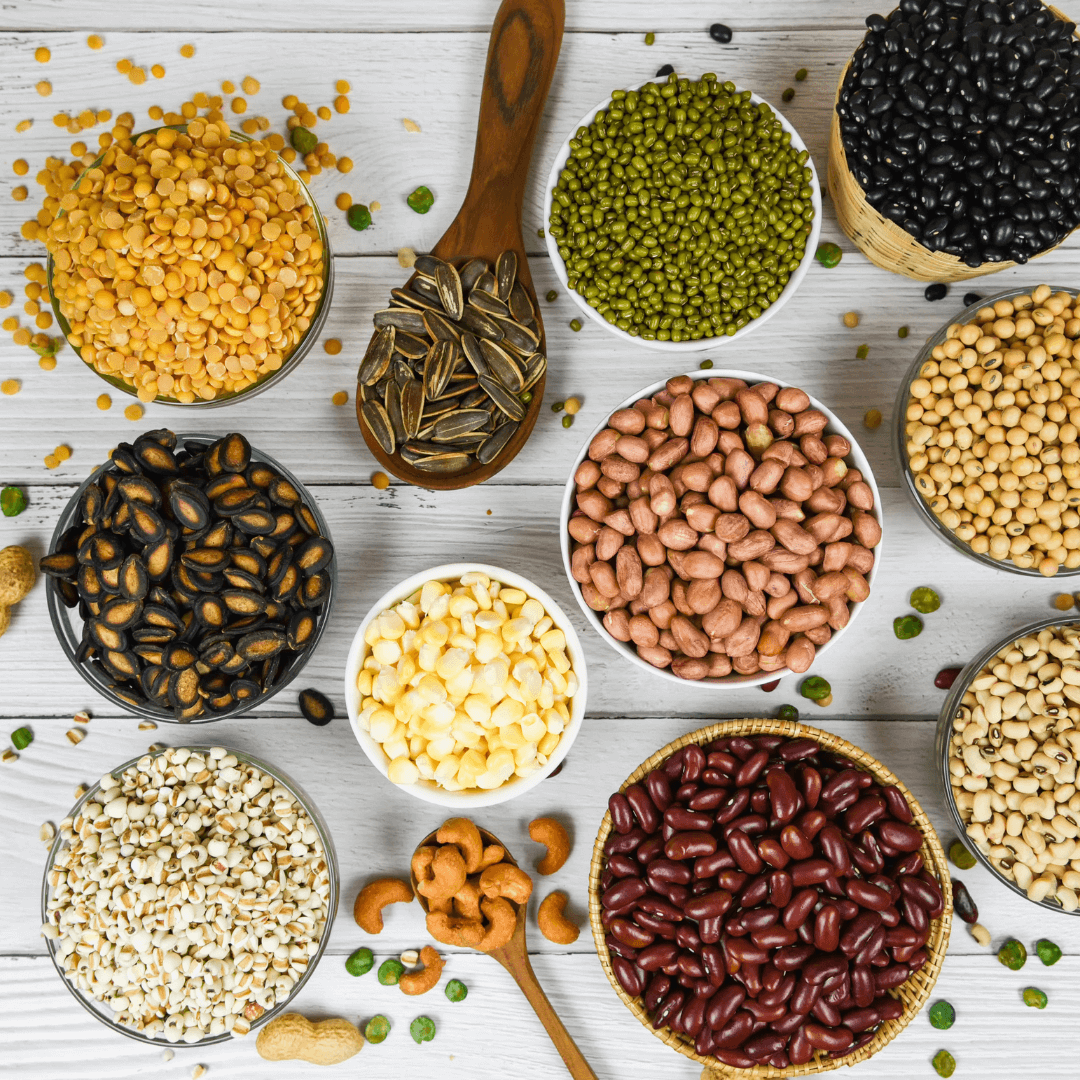 Canva
Canva
3 Legumes
Legumes—which include lentils and beans—are rich in fiber, protein, and other anti-inflammatory compounds. Due to their inflammation-reducing nature, legumes are recommended for heart-healthy diets, too. Recent research suggests that legumes contain bioactive compounds with antioxidant and anti-inflammatory properties, so they could be used to treat symptoms of arthritis and other inflammatory diseases.
There are literally thousands of types of legumes in the world. But, some of the most common types include chickpeas, black beans, pigeon peas, white beans, soybeans and soy products, mung beans, red lentils, brown lentils, split peas, and more.
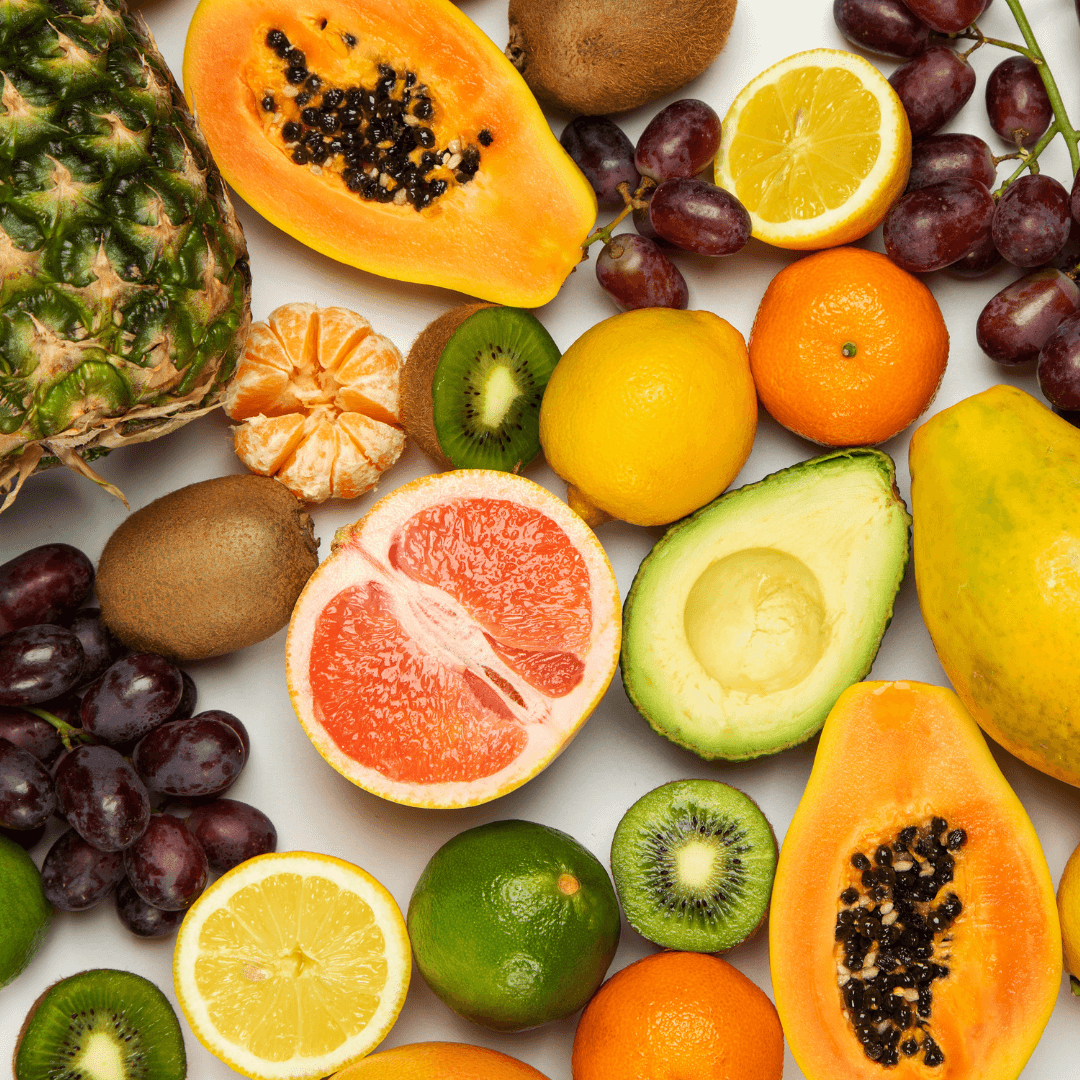 Canva
Canva
4 Fruit
Nature’s candy is rich in anti-inflammatory compounds, including fiber, vitamin C, pectin, polyphenols, and phytochemicals.
While açaí has its superfood reputation, practically all fruit is packed with anti-inflammatory benefits, including apples, cherries, peaches, plums, red grapes, oranges, lemons, and limes. Fresh or frozen fruit is best—many canned fruits contain added sugar.
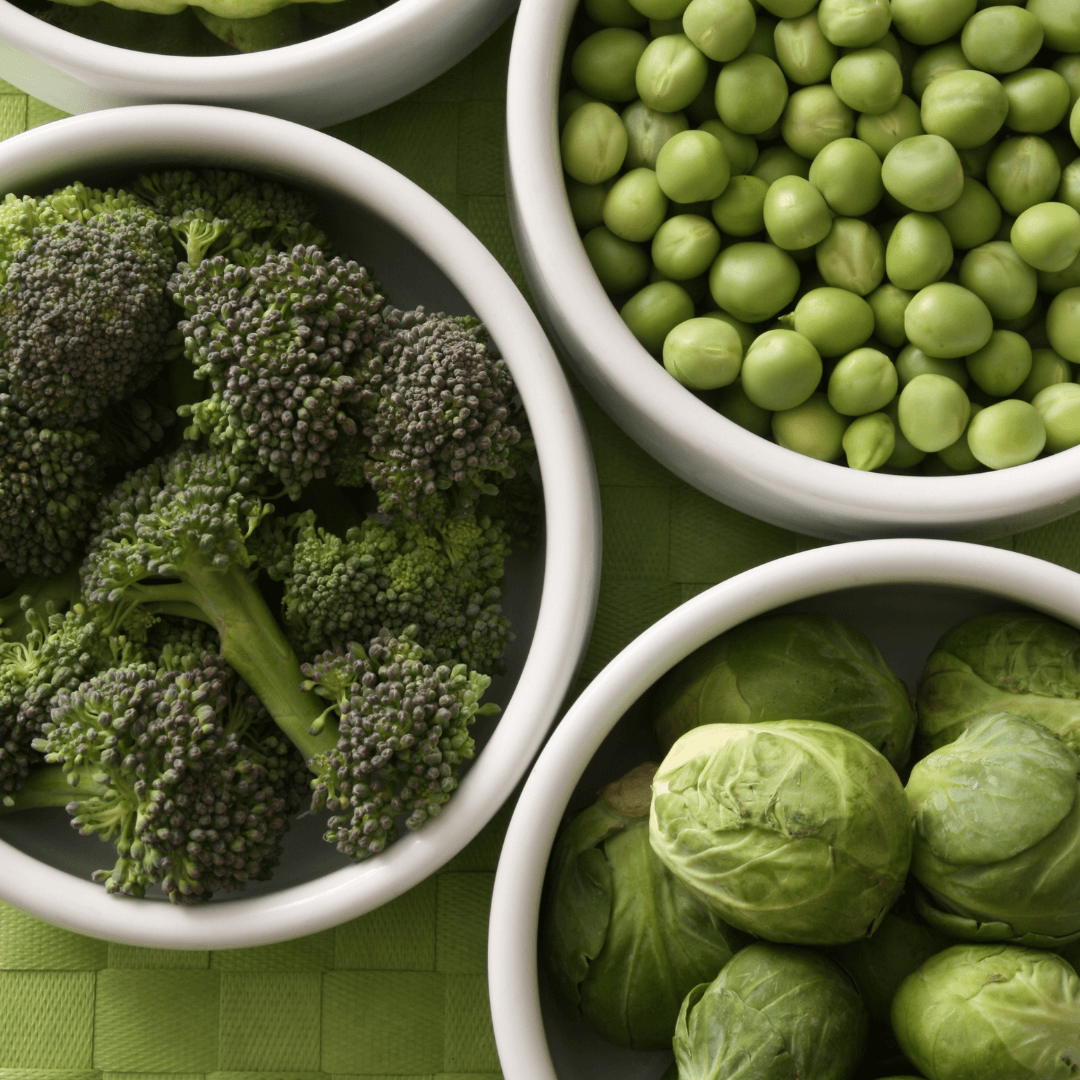 Canva
Canva
5 Vegetables
The vegetable world is rich in anti-inflammatory foods. Dark leafy greens like spinach, kale, and collard greens are good sources of fiber, antioxidants, and polyphenols. Broccoli contains sulforaphane, an antioxidant that helps reduce inflammation. Bell peppers contain vitamin C and mushrooms contain compounds called phenols. For an anti-inflammatory meal, you could serve roasted broccoli and tofu scramble made with turmeric over brown rice.
Food is just one factor that could help reduce the symptoms of an autoimmune disorder. Everybody is different, and what works for one person might not benefit someone else. If you are dealing with the symptoms of an autoimmune disease or expect that you may be, it’s best to see your doctor.
For more on vegan nutrition, read:
JUMP TO ... Latest News | Recipes | Guides | Health | Shop

